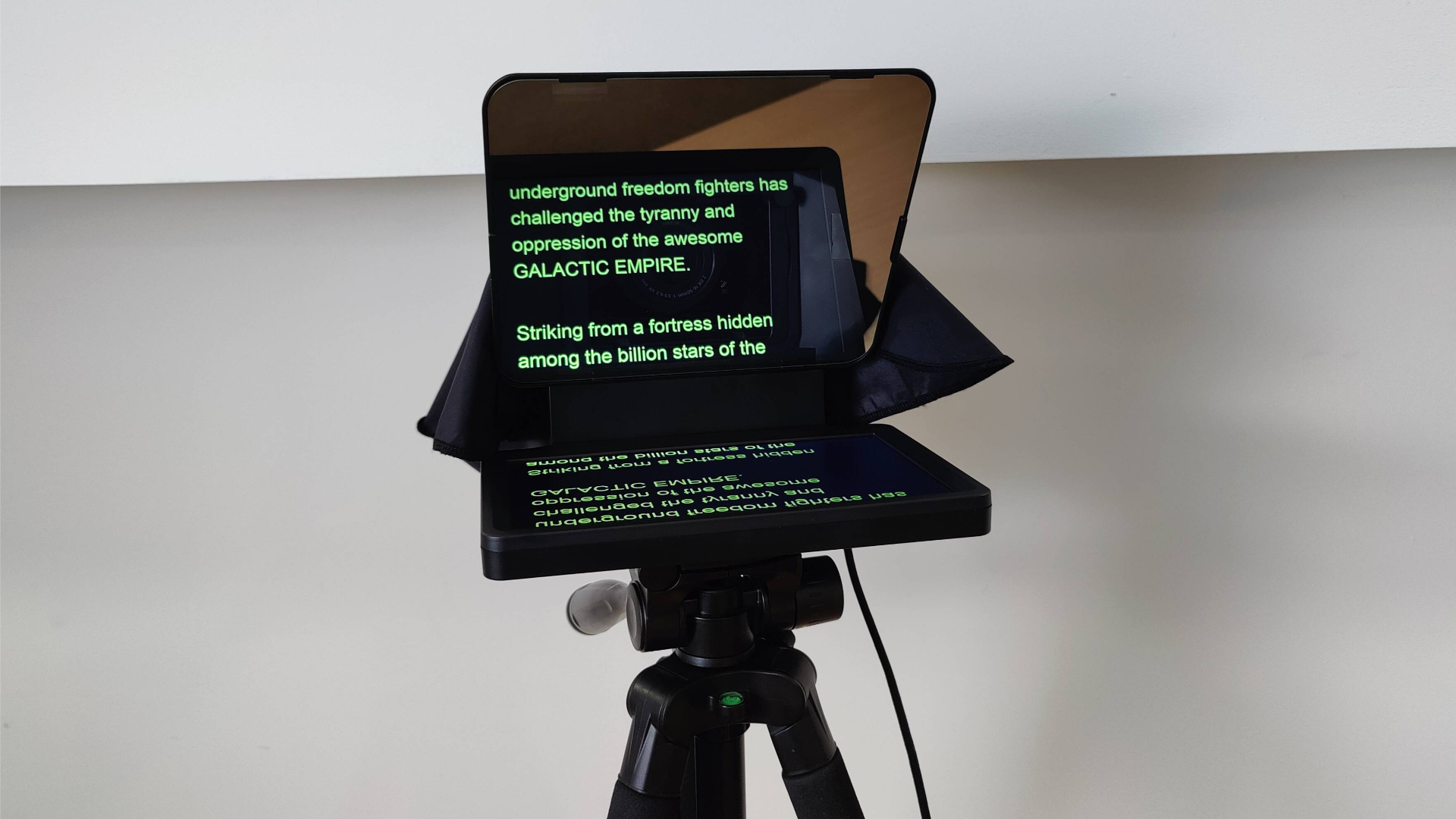
Elgato is an absolute juggernaut in the streaming space, offering just about everything a prospective streamer or video creator could need, from microphones and webcams to stream decks and capture cards. Now it’s adding teleprompters to that impressive line-up with the Elgato Prompter.
Most of the best teleprompters on the market are little more than fancy boxes with two-way mirrors in them. This means they’re reliant on you using a teleprompter app on another device, like a smartphone or tablet, to display the actual text. The Elgato Prompter differentiates itself here because it has a built-in display.
I’ve been dipping my toes into the world of making YouTube videos recently and wanted to check out a teleprompter to see if it made recording easier, so this is the perfect opportunity to put the Elgato Prompter through its paces.
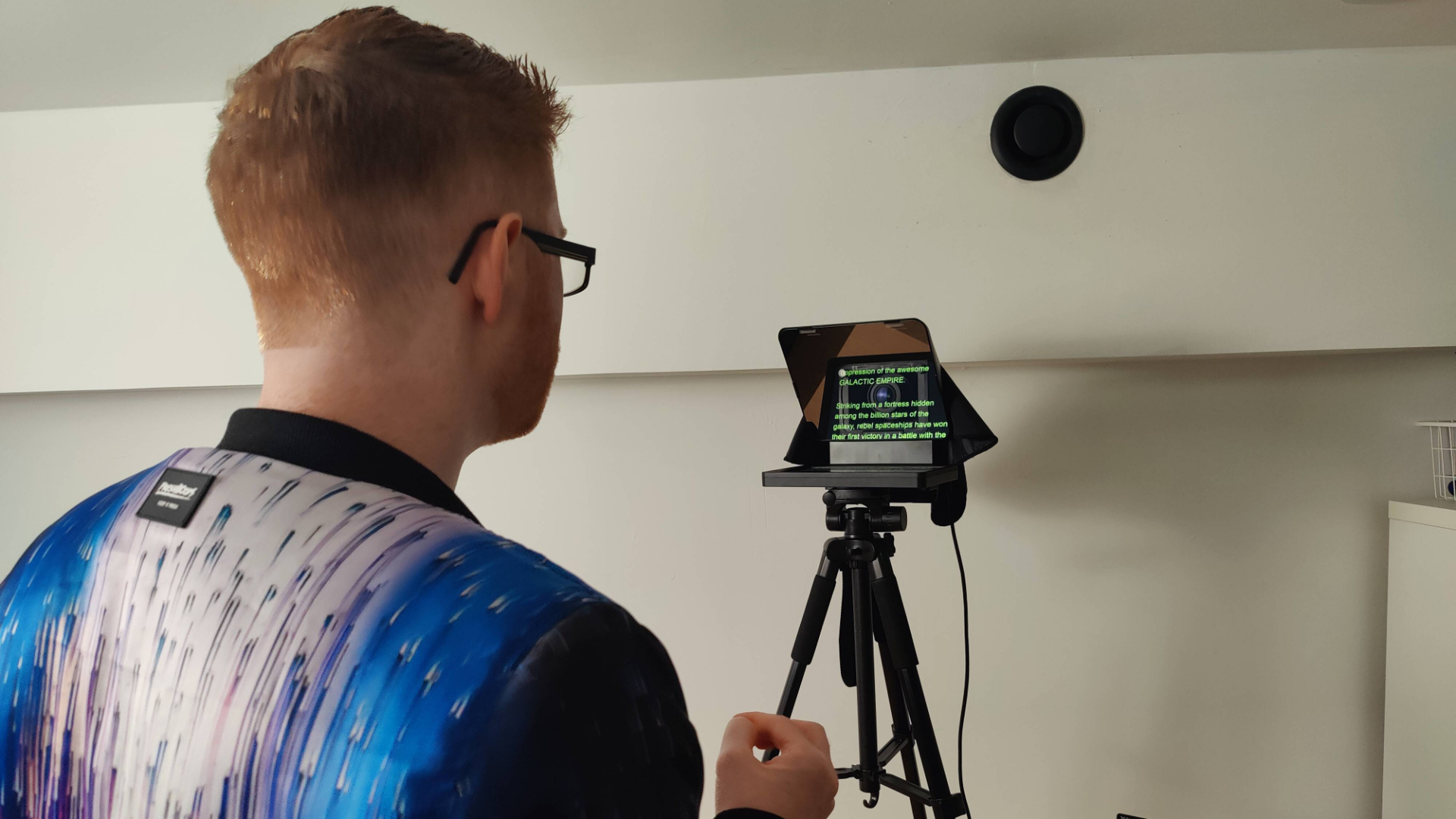
Elgato Prompter: Specifications
Elgato Prompter: Price
The Elgato Prompter costs $279.99 / £279.99 and can be purchased directly from Elgato, as well as third-party camera and electronics retailers. That makes this teleprompter significantly more expensive than the other options on our best teleprompters list — but, as it’s the only one that includes a display device, this makes sense
When ordering via Elgato, you can also create your own bundles with other Elgato products to save money. At the time of writing, you can get a key light mini and cold shoe add-on for free (normally costing $84.98).
At launch, the Prompter was so popular that it was damn near impossible to actually find — it was out of stock on Elgato’s site regularly. Now that the launch buzz has died down, supply has caught up with demand.
Elgato Prompter: Design & Handling
Even just unpacking the Elgato Prompter, it’s clear that it’s a premium product thanks to the custom-cut cardboard packaging (which is almost entirely recyclable). Inside the box you get the Prompter itself, USB-C to USB-A 3.0 cable (78.7in / 200 cm), L-bracket for attaching cameras, DSLR/Mirrorless camera ring backplate, 9x DSLR/Mirrorless step-up rings, Facecam Pro backplate, universal shroud backplate and all the mounting screws required. You also get a handy quick-start guide and a cleaning cloth too, which is a nice touch.
Measuring 8.9 x 8.6 x 11.1 inches with the universal mount attached, the Prompter is made primarily from matte black plastic and weighs just 690g / 1.52 lbs without accessories. The Elgato logo is etched into the top of the device, flanked on either side by two hot shoe mounting points, where you can attach lights, microphones, etc.
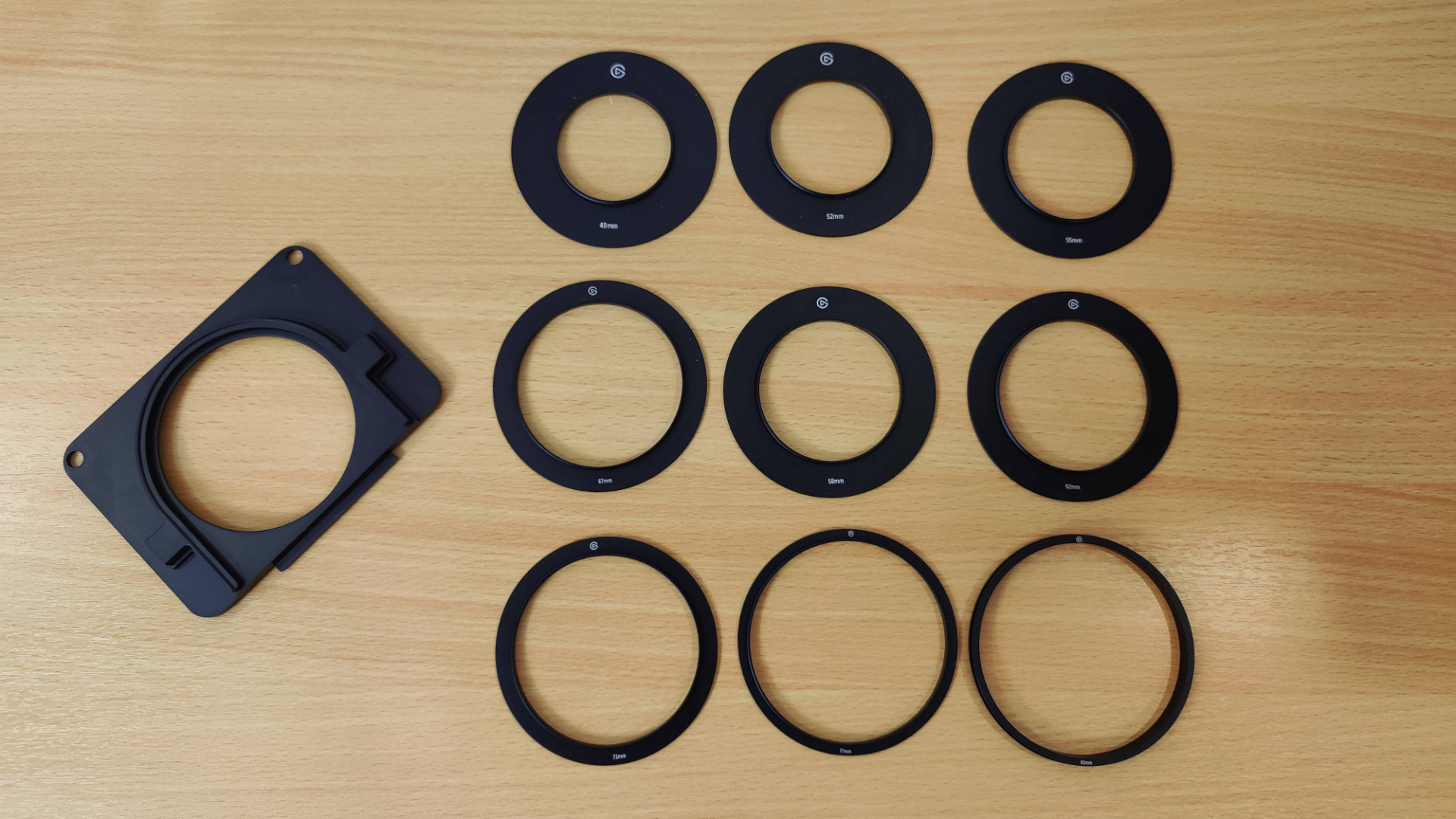
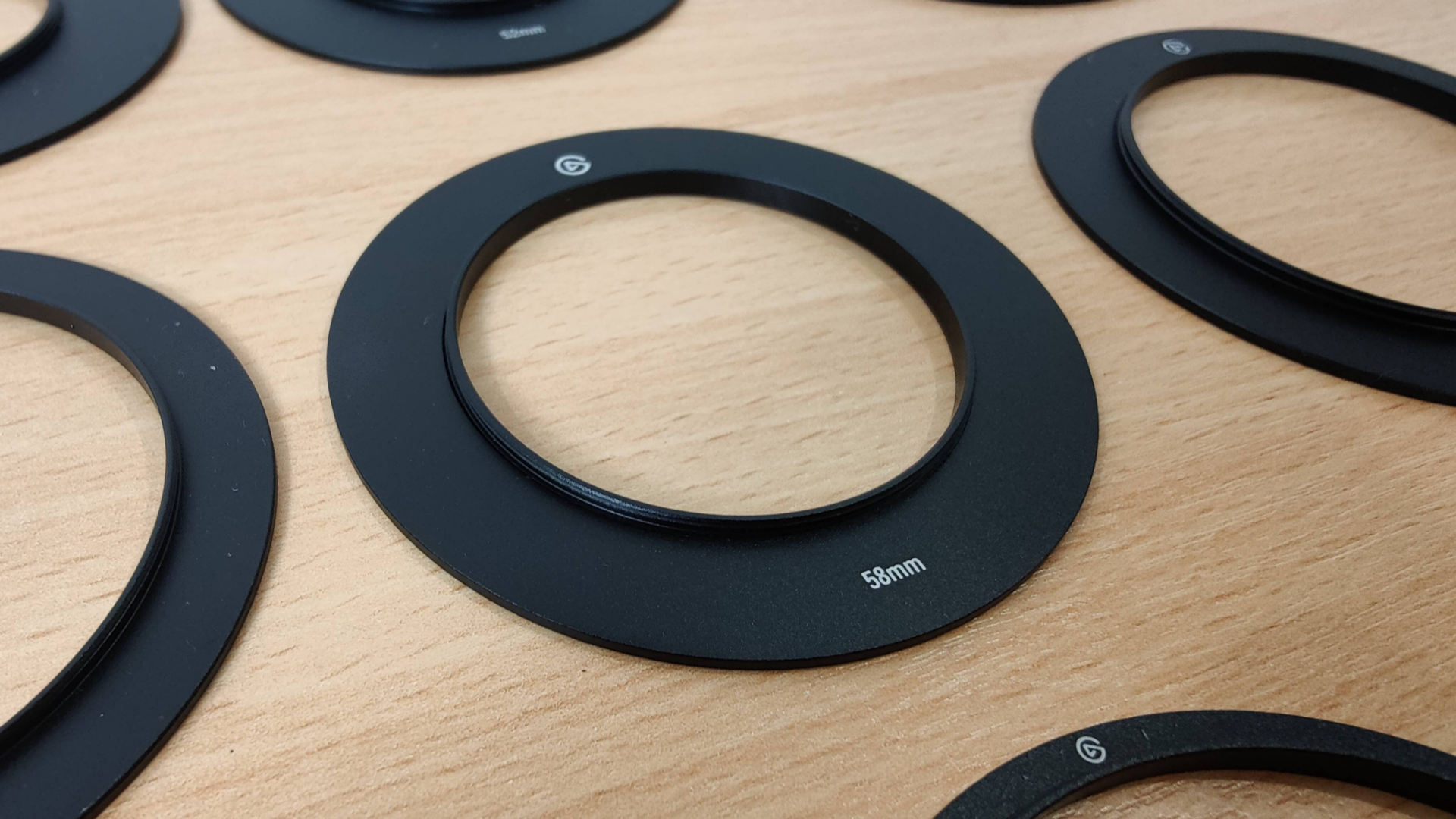
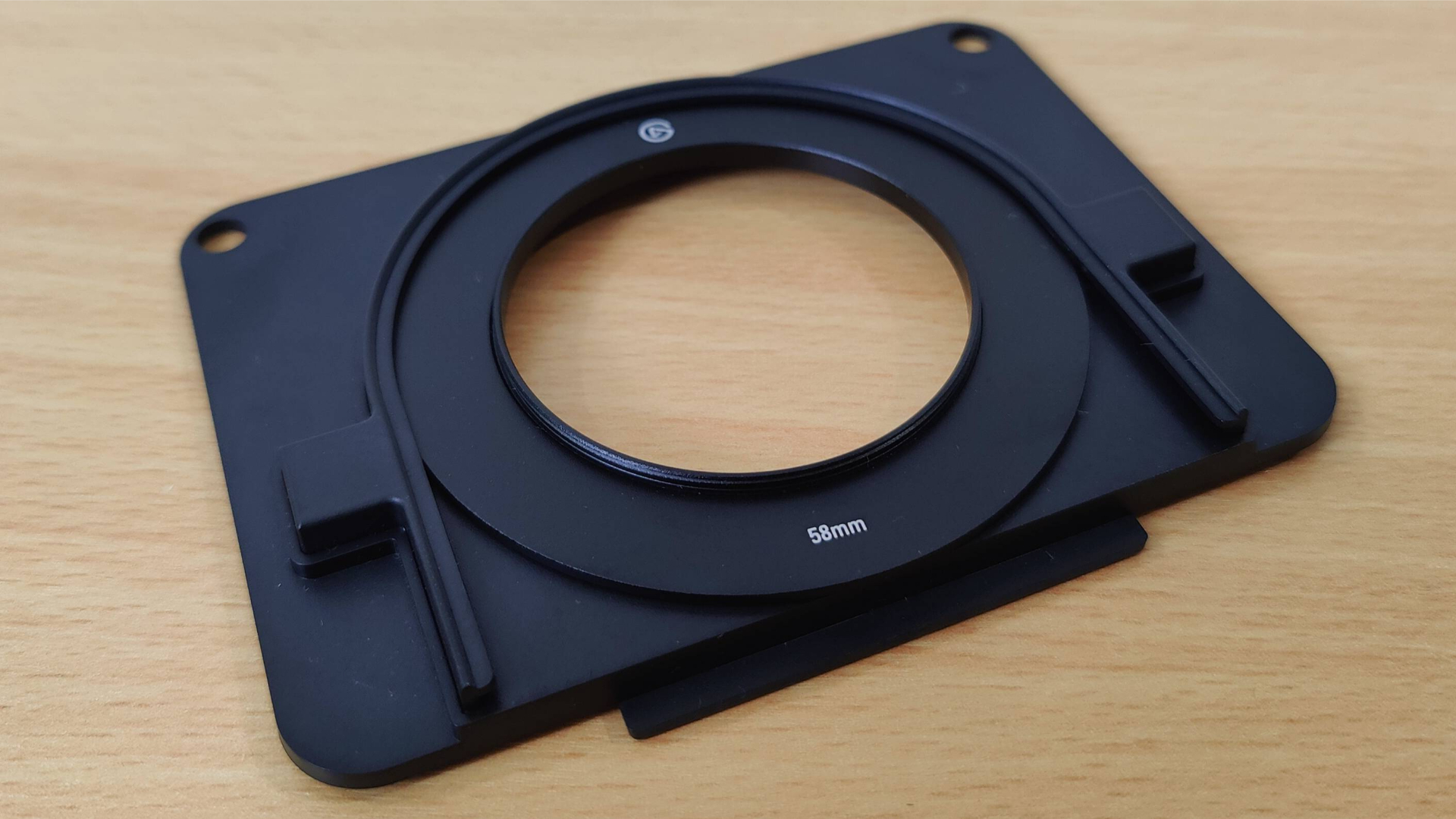
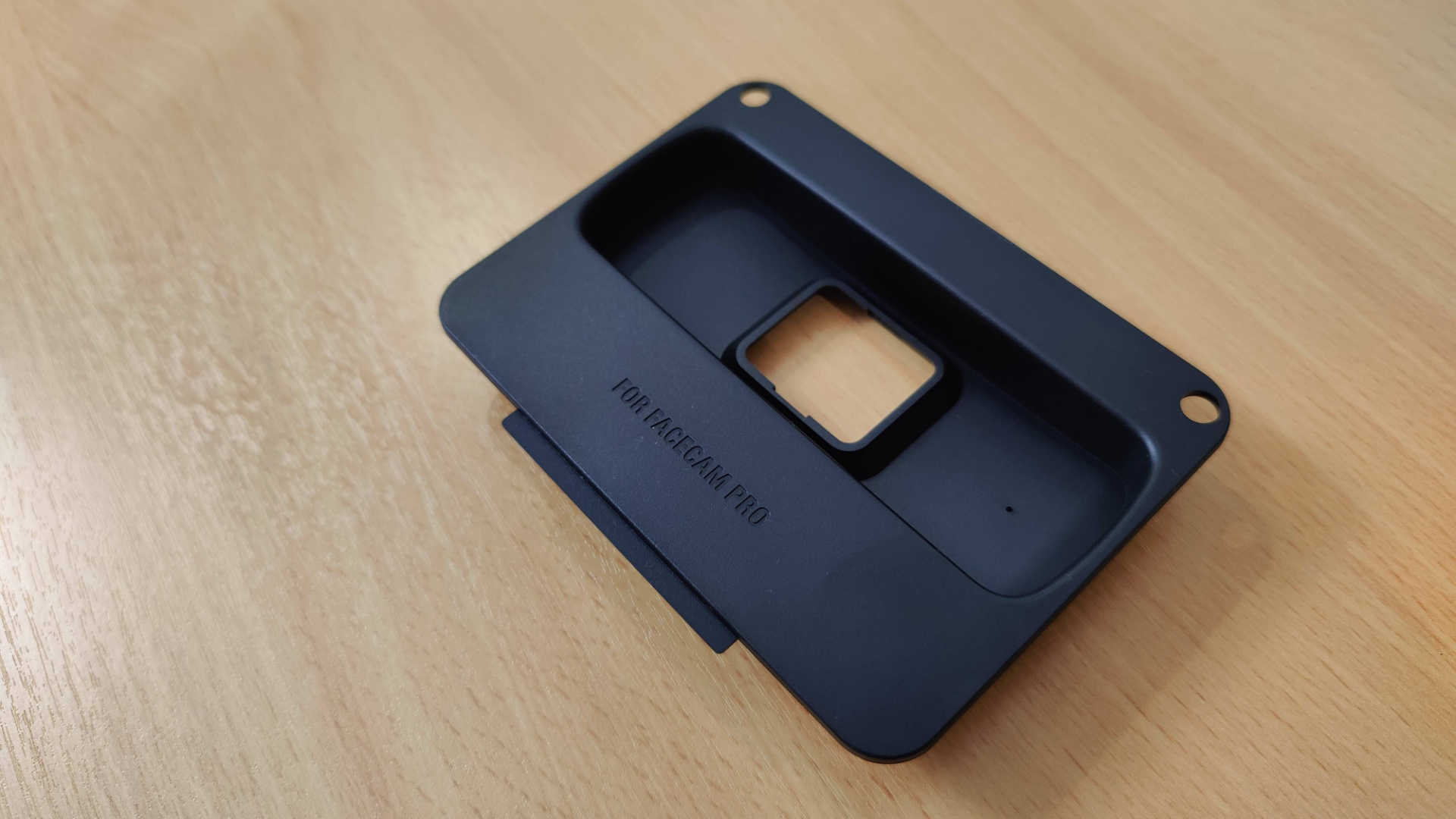
On the business end of the Elgato Prompter, you’ll find the 9-inch, 1024 x 600px resolution display mounted facing upwards with a sheet of “beamsplitter” glass above it — this glass reflects the image coming up from the screen, acting as a two-way mirror to let your camera see through from behind. Overall, it's a slick piece of kit that looks professional and high quality, which is what I’d expect from Elagto.
I found setting up the Prompter was a breeze. First, figure out which backplate you’ll need. If you’re using a DSLR or mirrorless camera with a compatible, threaded lens, then you’ll want to attach the ring backplate. Figure out which step-up ring you need by matching the listed diameter to your lens — you can find your lens diameter quickly by looking at the inside of the lens cap. Screw on the step-up ring to your camera’s lens, and then attach the camera to the teleprompter by slotting the ring into the backplate (and screwing the camera in place with the included ¼in screw for added stability). In this setup, the Elgato Prompter effectively hangs off the front of your camera, which will be mounted on a tripod. Note that there are extra ¼in mounting points on the Prompter if you want to add an additional anchor point.
Delightfully simple… for people who have a compatible lens. I do not, as it turns out — I’m using a Nikon Z-30 with a NIKKOR Z DX 16-50mm f/3.5-6.3 VR lens, which is not threaded and, at 46mm in diameter, is smaller than the smallest step-up ring to boot. So, I got to test out the process for mounting generic cameras (and smartphones, although you’ll need to provide your own phone mount) to the Prompter. Fortunately, it’s just as simple.
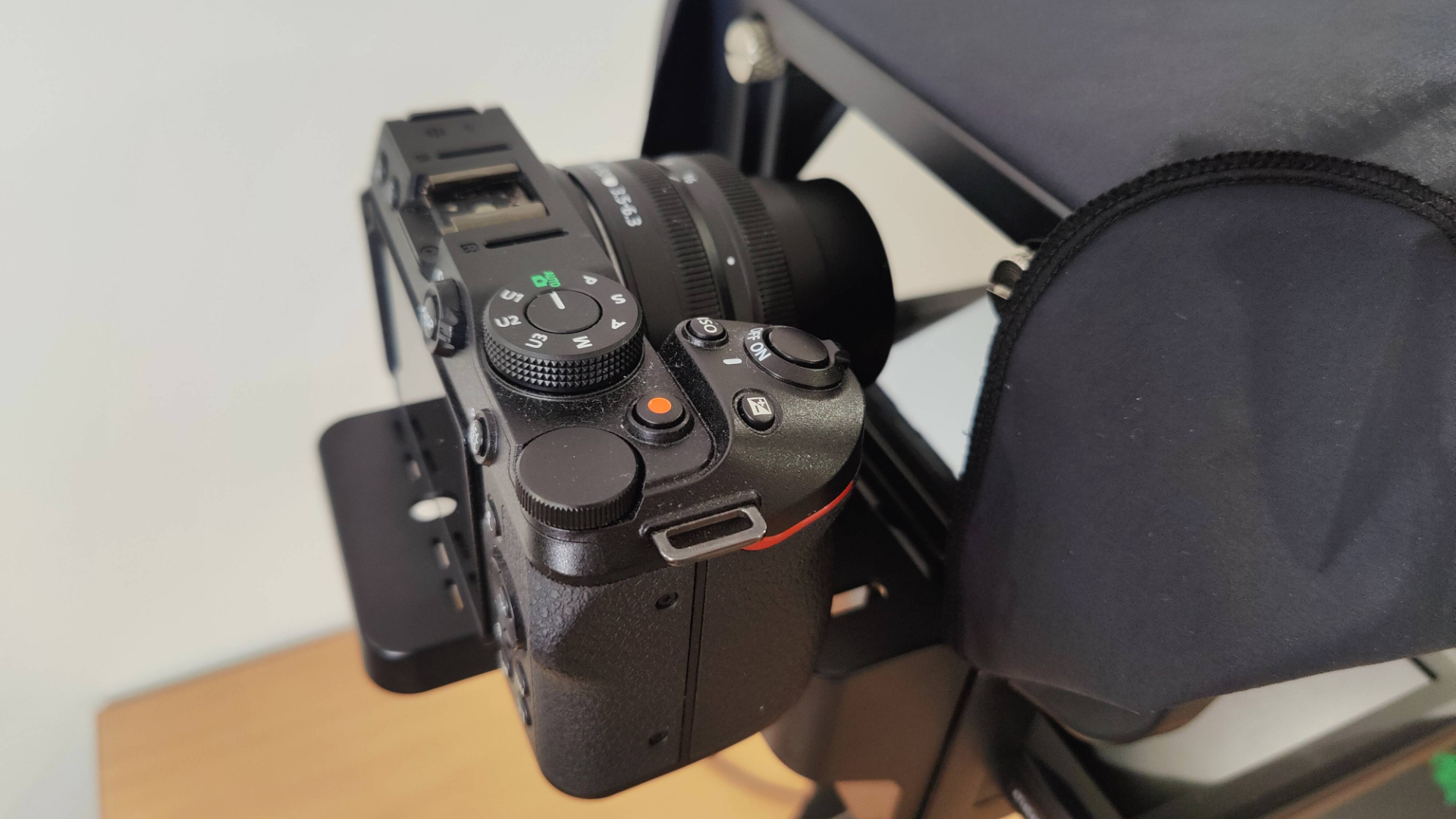
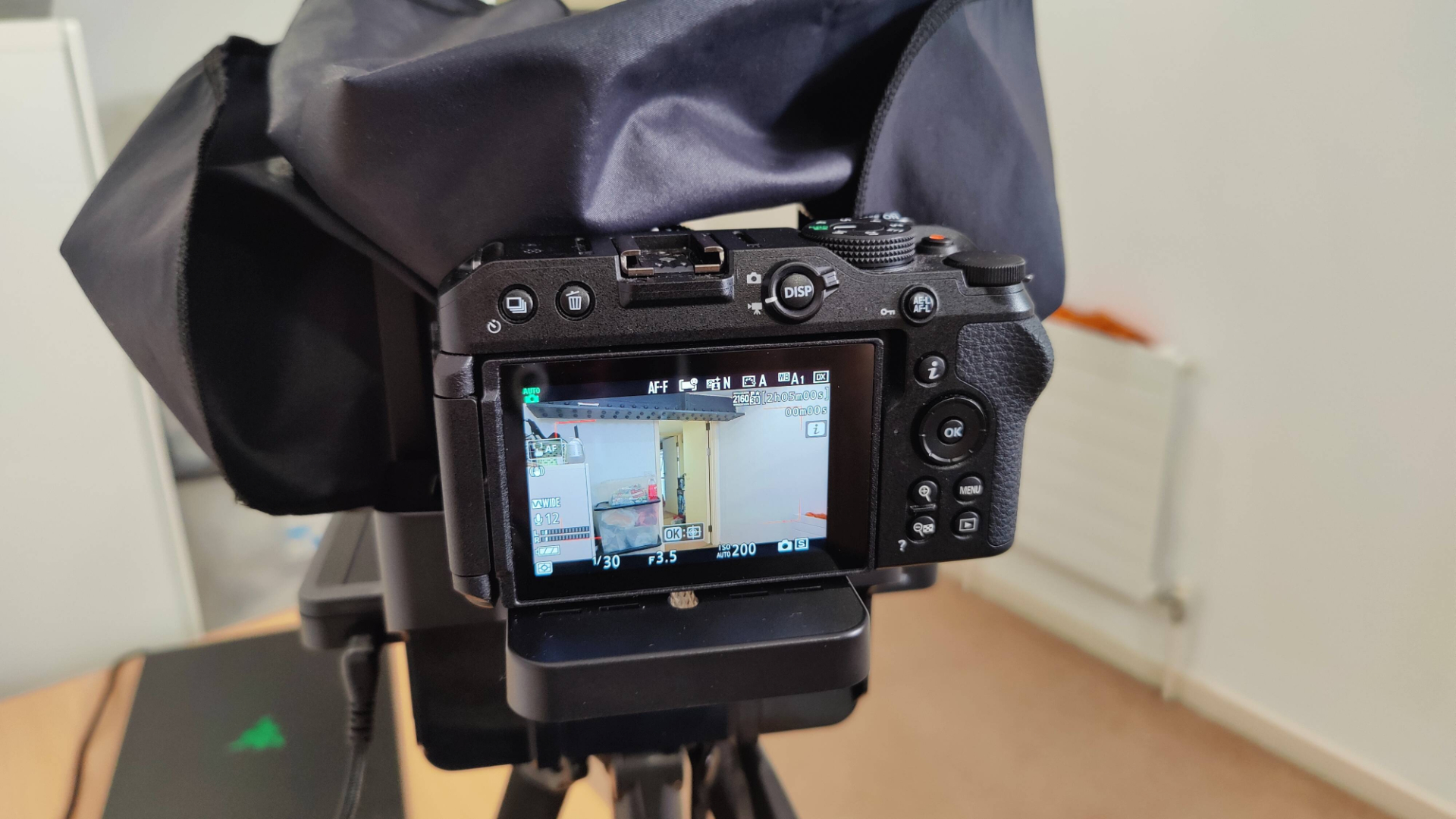
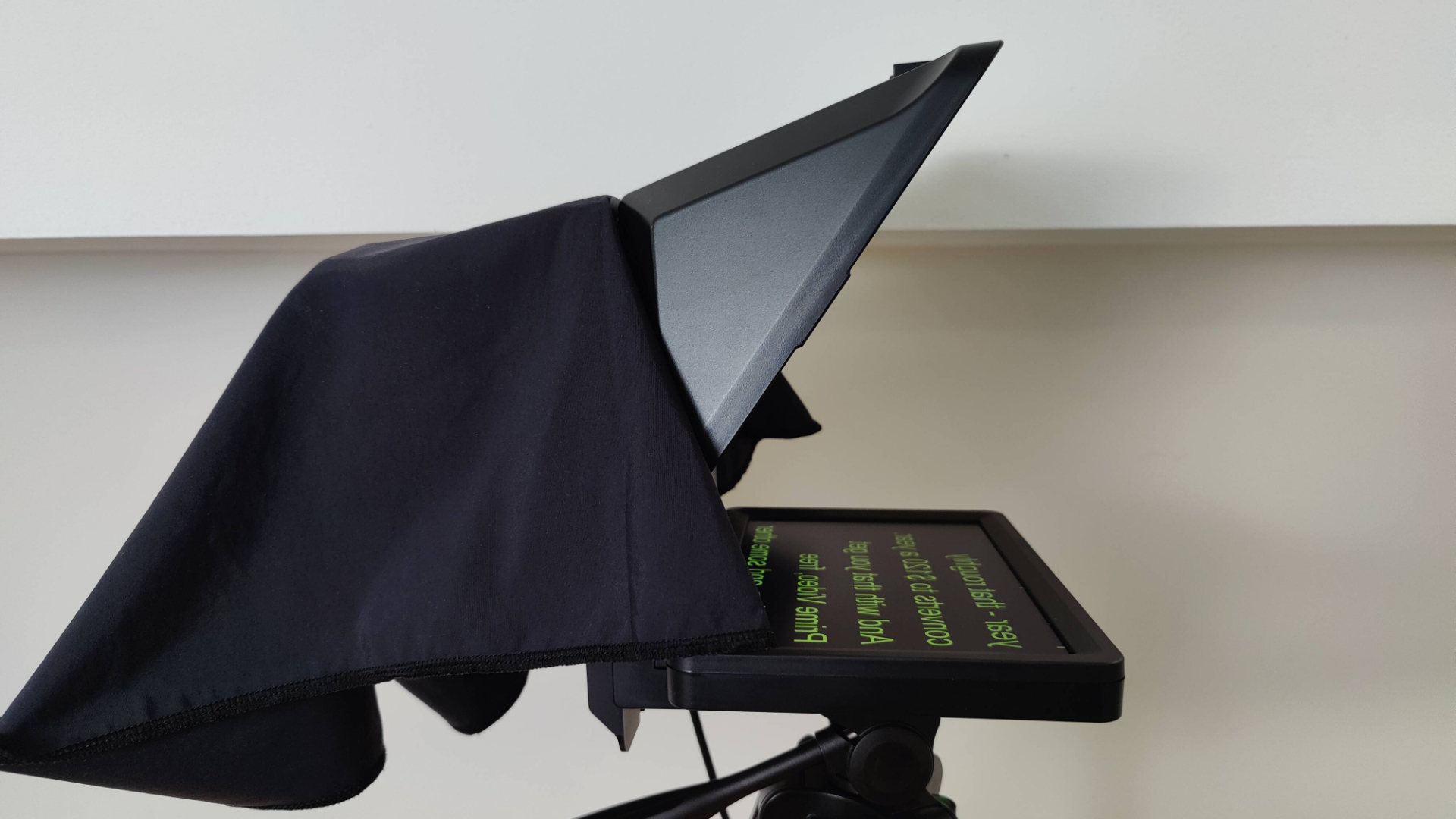
If you’re using Elgato’s Facecam Pro webcam, then there’s a specific backplate for that. For everyone else, the generic camera option is suitable for any kind of proper camera, as well as webcams and smartphones. You attach the included L-bracket to the Prompter, then attach your camera to the bracket via a ¼in screw, cover your camera with the built-in shroud to block out light spillage and you’re good to go.
Honestly, I much prefer this setup to Elgato’s needless complex ring system. You don’t need a specific lens, and you don’t end up hanging a heavy teleprompter from your expensive camera lens since it mounts on the L-bracket. Without the ring as a guide, you need to manually make sure the camera is pointing straight ahead, but that’s easy enough.
Once the camera is mounted, you’ll need to connect the Prompter to a computer, laptop, or tablet via the included USB-C cable. This cable plugs into the back-right side of the screen and has a 90° angle connection to keep everything looking nice and tidy. From there just load up the Elgato Camera Hub app (available as a free download on Elgato’s website) and it should automatically detect the Prompter. I had to update my DisplayLink driver on my PC before it would work, which was frustrating, but to Elgato’s credit, they do have an article addressing this issue on their website.
Elgato Prompter: Performance
Continuing the focus on ease of use, setting up the Prompter using the app is a breeze. The Elgato Camera Hub app has a simple and easy-to-follow layout, with all the options for configuring your text appearing on the left-hand side.
From here you can easily change the text speed, size, font, color, and more to suit your needs. As a big nerd, the first thing I did was change the text color to yellow so it looked like the Star Wars text scroll.
The controls mean that you can increase the text size, so you can use the Prompter from further away. The larger your text, the more precise your scroll speed timings will need to be if you’re reading longer sections of text. I found it easy to tweak these settings to the perfect combination by doing some practice readings. While the app will remember your previous settings by default, it’s a shame that there is no way to save multiple different profiles. There is also no button to reset everything to default, which seems like a strange oversight.
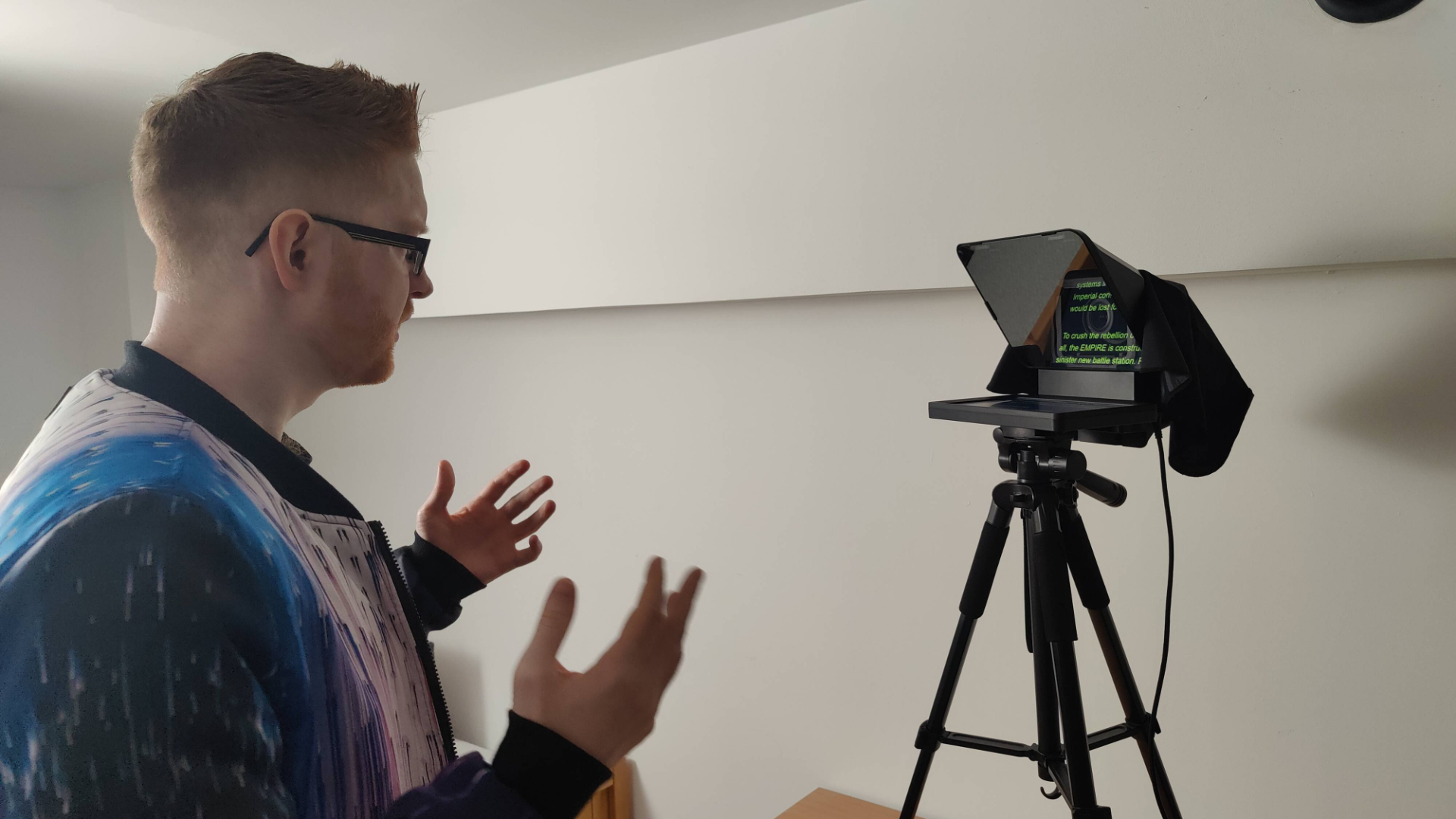
Once I had all my text set up, I found the Prompter to be a joy to use. It displays text super clearly, and there is enough brightness from the display to create the necessary two-way mirror effect. You can kind of see the camera behind the screen if you look for it, but it’s not distracting and doesn’t muddy up the image quality at all.
Being able to read my script as I recorded meant that I could concentrate on being more animated and entertaining in my presentation. This is true of any teleprompter, yet what I appreciated about the Elgato was how simple it made everything, from set up and use, to being able to quickly tweak the text speed or size on the fly.
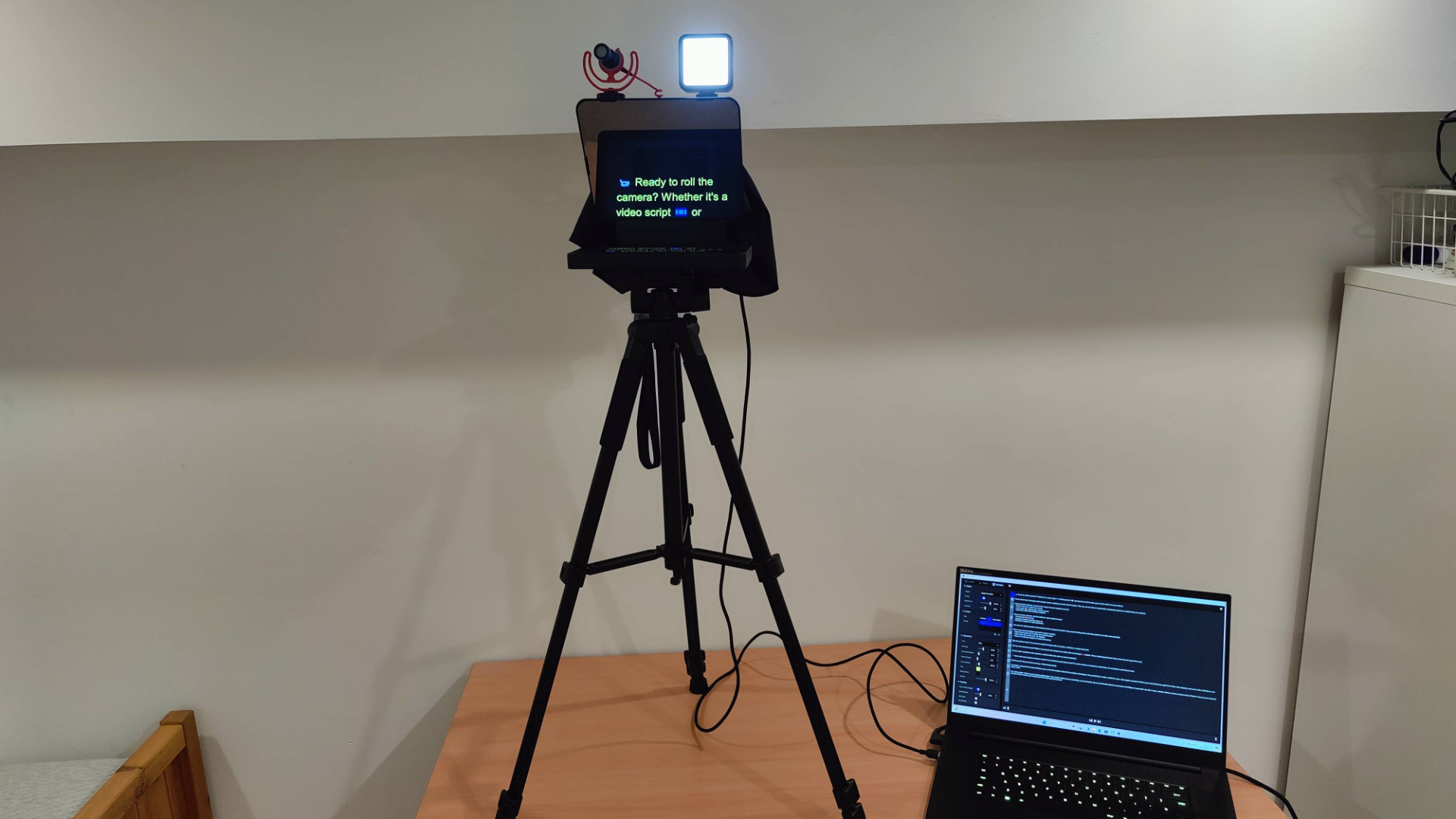
I do wish it had a remote control, or even just an app that syncs up with your computer so you can quickly pause and rewind the Prompter. You can use a Stream Deck if you have one, but it’s annoying to have this functionality locked behind another proprietary device. Even with the perfect speed nailed down, during testing I would occasionally flub a line and then I’d have to wander over to the computer and reset the text position, which ruined my flow even more.
You can also mirror your screen on the Prompter. So, if you’re chatting over Zoom or Skype, you can display the video on the Prompter and whoever you’re calling will see you looking straight at them. It’s a niche use case, probably best suited to recording video interviews and giving presentations, but if you need a Prompter for work, it’s a nice little bonus.
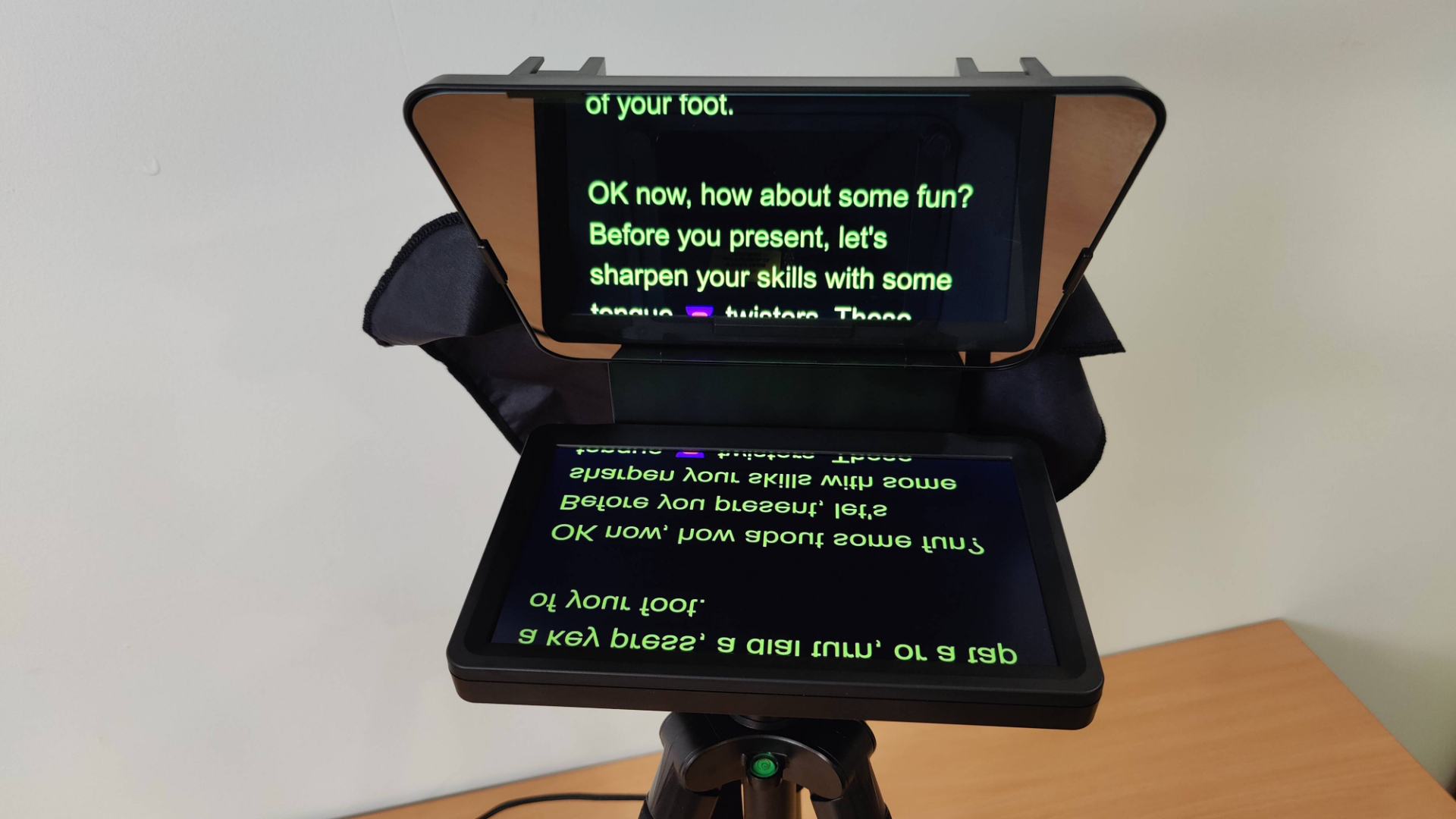
The ability to put Twitch chat in there is potentially much more exciting. Not only does it act as a second screen for streamers, freeing up your main screen for your game, but it also means that when you’re reading out chats, you’ll be looking right at the camera, establishing a more personal connection with your audience.
Needing to be connected to a device in general is another drawback here, as it kind of defeats the point of the integrated screen. Sure, you don’t need to use your phone or tablet to project the image, but you still need to film near your PC, or have a laptop on hand to run the app. But at that point, you’d be bolting a tiny tablet to this thing, instead of a tiny monitor, and that would certainly have just increased the weight and cost. I can see why Elgato made this trade-off, but it’s a flaw worth noting.
Elgato Prompter: Verdict
The Elgato Prompter does exactly what you’d want and expect it to — it simplifies the experience of setting up and using a teleprompter, making it more accessible to even more people. You don’t need to download sketchy apps to your phone or tablet, you just plug it in, open the tailor-made app, and away you go. It’s thoughtfully designed to ensure compatibility with just about any camera, and the wealth of customization options means that you’re able to modify the display to suit your video style.
The ring system is a neat, if slightly over engineered, way of attaching cameras with perfect alignment. However, I wish they’d included a 46mm ring as that’s quite a common diameter for vlogging/video lenses. Thankfully, their universal attachment method works a charm.
I think the Elgato Prompter offers tremendous value for the cost, but it’s still not cheap. If you’re already making videos and want to improve your on-screen presence, this is the best teleprompter out there. If you’re just starting out, I’d say get a less pricey option or just skip the teleprompter altogether until you’re more invested in videography and content creation.

✅ Buy it...
- You’re looking to improve your talking head videos
- You want a simple, all-in-one teleprompter
- You’re a streamer as well as video creator
🚫 Don't buy it...
- You’re looking for a budget option
- You need something truly portable
Alternatives
The Elgato Prompter is fairly unique in the market in that it has a built-in screen. If you don’t mind using your phone or tablet as the display, there are a bunch of cheaper options out there that you could try.







